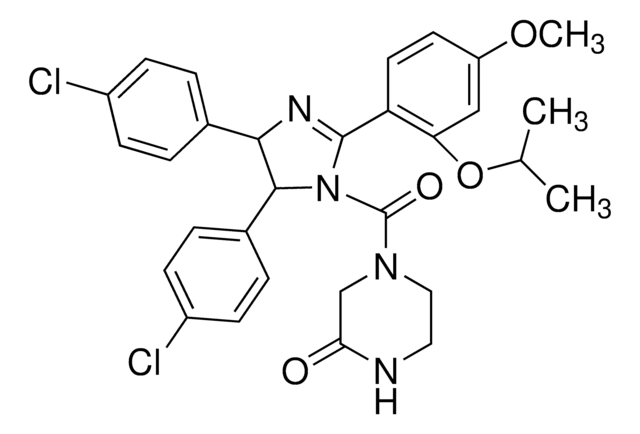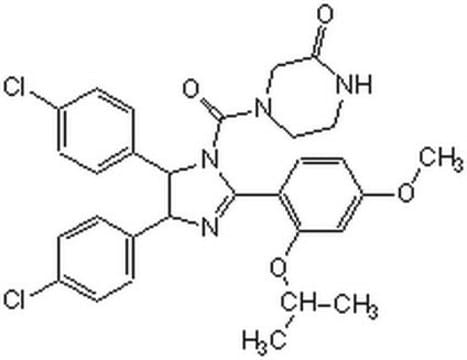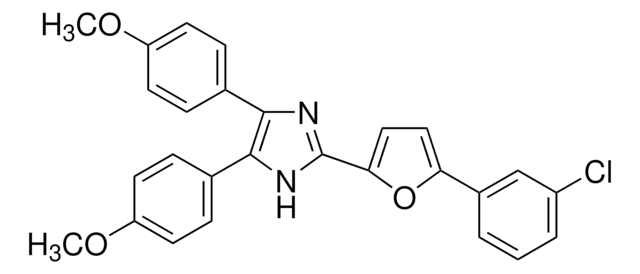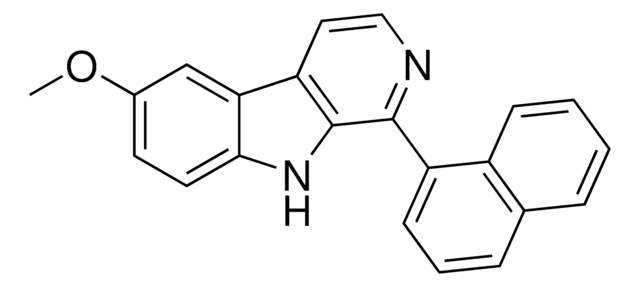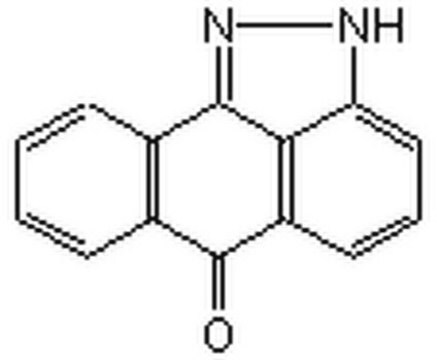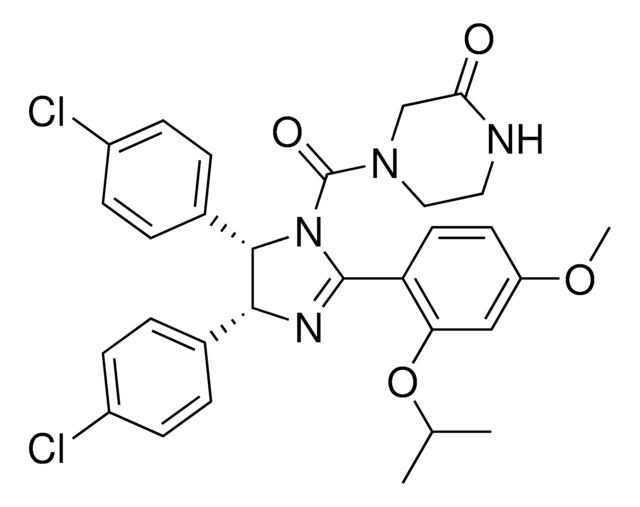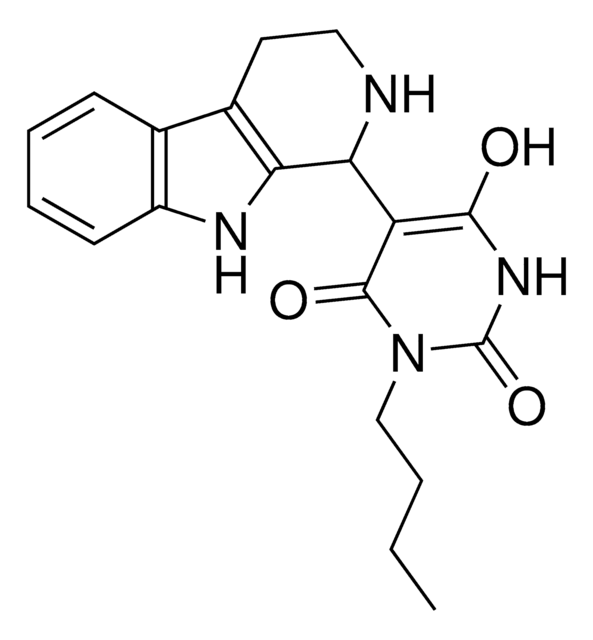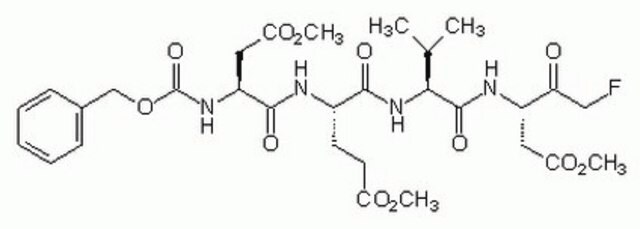444143
MDM2 Antagonist, Nutlin-3, Racemic
The MDM2 Antagonist, Nutlin-3, Racemic, also referenced under CAS 548472-68-0, controls the biological activity of MDM2. This small molecule/inhibitor is primarily used for Cancer applications.
Synonym(e):
MDM2 Antagonist, Nutlin-3, Racemic, MDM2 Inhibitor IV
About This Item
Empfohlene Produkte
Qualitätsniveau
Assay
≥98% (TLC and HPLC)
Form
solid
Hersteller/Markenname
Calbiochem®
Lagerbedingungen
OK to freeze
protect from light
Löslichkeit
DMSO: 25 mg/mL
ethanol: 25 mg/mL
Versandbedingung
wet ice
Lagertemp.
−20°C
InChI
1S/C30H30Cl2N4O4/c1-18(2)40-25-16-23(39-3)12-13-24(25)29-34-27(19-4-8-21(31)9-5-19)28(20-6-10-22(32)11-7-20)36(29)30(38)35-15-14-33-26(37)17-35/h4-13,16,18,27-28H,14-15,17H2,1-3H3,(H,33,37)
InChIKey
BDUHCSBCVGXTJM-UHFFFAOYSA-N
Allgemeine Beschreibung
Biochem./physiol. Wirkung
MDM2
Verpackung
Warnhinweis
Rekonstituierung
Sonstige Hinweise
Vassilev, L.T., et al. 2004. Science303, 844.
Rechtliche Hinweise
Lagerklassenschlüssel
11 - Combustible Solids
WGK
WGK 3
Flammpunkt (°F)
Not applicable
Flammpunkt (°C)
Not applicable
Analysenzertifikate (COA)
Suchen Sie nach Analysenzertifikate (COA), indem Sie die Lot-/Chargennummer des Produkts eingeben. Lot- und Chargennummern sind auf dem Produktetikett hinter den Wörtern ‘Lot’ oder ‘Batch’ (Lot oder Charge) zu finden.
Besitzen Sie dieses Produkt bereits?
In der Dokumentenbibliothek finden Sie die Dokumentation zu den Produkten, die Sie kürzlich erworben haben.
Unser Team von Wissenschaftlern verfügt über Erfahrung in allen Forschungsbereichen einschließlich Life Science, Materialwissenschaften, chemischer Synthese, Chromatographie, Analytik und vielen mehr..
Setzen Sie sich mit dem technischen Dienst in Verbindung.